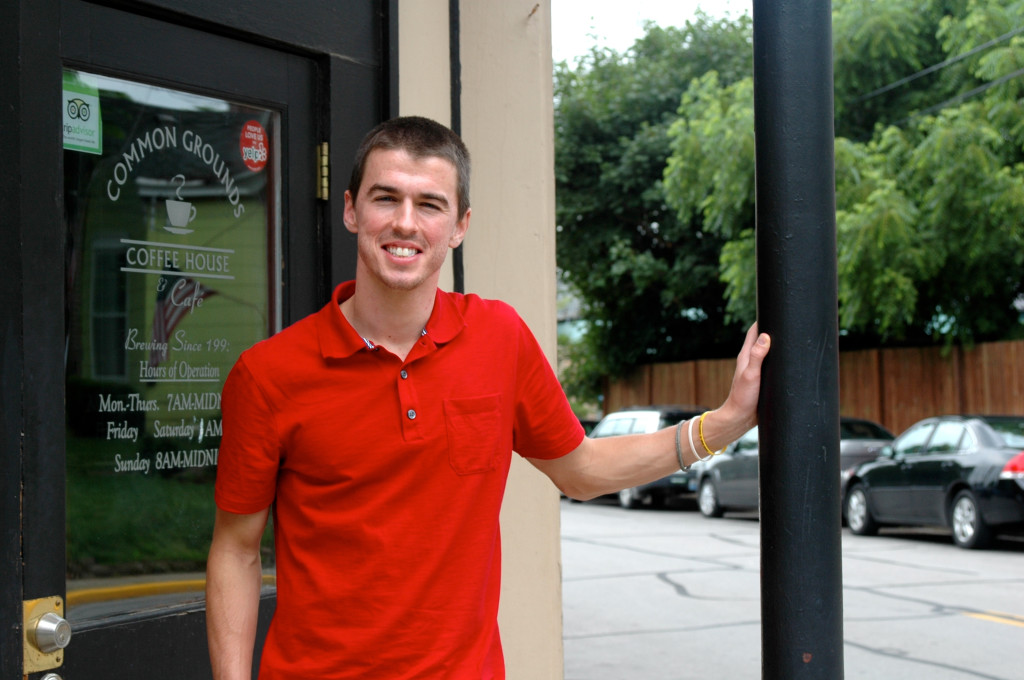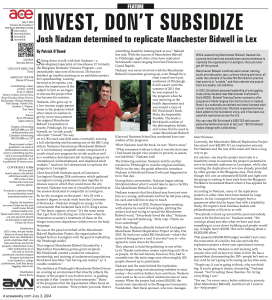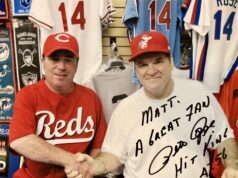By Patrick O’Dowd
“It costs a lot of money to keep people poor. We spend $7 billion in Pennsylvania on welfare out of a $28 billion budget. What I am saying is invest in young people and give them the chance to be productive citizens. You do not have to subsidize them”
—Manchester Bidwell Corporation founder Bill Strickland
Sitting down to talk with Josh Nadzam—a development specialist at Greenhouse 17, formerly the Bluegrass Domestic Violence Program—you immediately take note of his focus. He has just finished up a meeting with others working on an ambitious project he’s spearheading. Leaning forward as he speaks, you sense the importance of the subject to him as we begin to discuss the project that has become his mission.
Nadzam, who grew up in a low-income single-parent home in the projects which often relied on welfare to get by, never encountered the original Manchester Bidwell Corporation in nearby Pittsburgh. He was, himself, an “at-risk youth,” who later “clawed” his way on to UK’s track and field team, eventually earning a full scholarship and becoming one of the SEC’s top milers. Nadzam characterizes Manchester Bidwell as “a revolutionary nonprofit center comprised of a youth visual arts program for at-risk youth as well as a workforce development job training program for unemployed, underemployed, and displaced adult workers.” And now he’s determined to replicate the program in Lexington.
I first heard Josh Nadzam speak at Commerce Lexington’s Emerge 2014 conference which gathered Lexington’s young professional class together to discuss ways in which they could move the city forward. Nadzam was one of a handful of panelists at the session dedicated to nonprofits in Lexington.
By far the youngest on the panel—he’s 25 with a master’s degree in social work from the University of Kentucky—Nadzam brought an energy to the conversation that harkened back to Dr. King’s sense of “the fierce urgency of now.” It’s the same sense that I get from him during our interview when his frustration at society’s treatment of those on the fringes turns into impatience visible even in his body language.

He was at the panel on behalf of the Manchester Bidwell Replication Project, the organization he helped form in Lexington with the goal of replicating the Pittsburgh model.
That original Manchester Bidwell (founded by a MacArthur Foundation genius grant recipient, Bill Strickland) created a model for education, mentorship, and training of underserved populations. Strickland describes “not having any money” as “a curable condition.”
The facilities at Pittsburgh’s Manchester Bidwell focus on creating an environment that directly reflects the beauty of the people it was built to serve. A guiding principle is that “creativity fuels enterprise.” Many of the programs that the organization offers focus on art, music and creation. “Everywhere you look, there’s something beautiful looking back at you,” Bidwell has said. With the success of Manchester Bidwell in Pittsburgh, eight other cities have replicated Strickland’s vision ranging from San Francisco to Grand Rapids.
Nadzam was never involved with the Manchester Bidwell Corporation growing up, even though he is from a small town just northwest of Pittsburgh. It still wasn’t until the summer of 2011 that he was exposed to the program when he was interning at the health department and was loaned a copy of Bill Strickland’s book, Make the Impossible Possible. The book is Strickland’s outline of the philosophies, beliefs, and values that he used to create Manchester Bidwell. (Harvard Business School has conducted four case studies of the program.)
When Nadzam read the book, he was “blown away.”
“What resonated with me is that, it was the first time I had heard people view people in poverty as assets, not liabilities,” Nadzam said.
The following summer, Nadzam and his mother traveled to Pittsburgh to visit the original facilities. While on the tour, the guide offered to introduce Nadzam to Strickland himself who just happened to be in that day.
During their conversation, Nadzam began asking Strickland about what it would take to open a facility like Manchester Bidwell in Lexington.
Nadzam suspects that Strickland may have just taken him as a young, enthusiastic kid but he did pass along his card and told him to stay in touch.
Towards the end of 2012, Nadzam began meeting with anyone he could in Lexington, pitching the project and and trying to spread the Manchester Bidwell word. “Everybody loved the idea,” Nadzam said. He was left believing, “Holy crap. I think we have something!”
With that, Nadzam officially kicked-off Lexington’s Manchester Bidwell Replication Project on May 21st, 2013. He had even called Bill Strickland—what’s the point of being given a card if you don’t use it—who agreed to come down for the event.
They planned to hold the gathering in one of the Lyric Theater conference rooms, expecting only 20 or so people. At the last minute, however, they had to scramble into the main stage area when roughly 200 people showed up to participate.
Nadzam and the team behind the replication project began using crowdsourcing websites to raise money—five and ten dollars, here and there. Nadzam even went as far as to collect aluminum cans to raise money. When the project had raised $10,000, the funds were transferred to the Bluegrass Community Foundation, their fiscal sponsor, who now manages their finances.
Currently, the Manchester Bidwell Replication Project has raised over $40,000. It’s an impressive amount, but Nadzam and the rest of the team still have a long way to go.
For starters, one step the project must take is a feasibility study to examine the project’s potential to serve its intended audiences in Lexington, while also avoiding the duplication of services already provided by other groups in the Bluegrass area. That study though will cost an estimated $150,000 and right now the group is waiting to hear back from the Bluegrass Workforce Investment Board where it has applied for funding.
According to Nadzam, many of the replication projects in other cities have been backed by large donors. So far, Lexington’s has largely been a grassroots effort but he hopes that with a feasibility study, the region’s local business leaders and philanthropists will join in as well.
 “Everybody is lined up around the pool and nobody want to be the first one in,” Nadzam noted. “We could go ahead and take what we have and start something in a run-down building and people would say, ‘Alright, here’s $5,000.’ But we’re talking about a $5,000,000 effort.”
“Everybody is lined up around the pool and nobody want to be the first one in,” Nadzam noted. “We could go ahead and take what we have and start something in a run-down building and people would say, ‘Alright, here’s $5,000.’ But we’re talking about a $5,000,000 effort.”
That projected $5,000,000 budget wouldn’t just cover the renovation of a facility but also provide the replication project a three-year operational runway.
In the meantime, Nadzam is still meeting with anyone who will sit down to listen to him (he has a spreadsheet documenting the 300+ people he’s met so far). And he isn’t going to be easing up anytime soon.
“People say, if you’re going to think, why not think big. If you’re going to dream, dream big,” Nadzam mused. “So I’m testing those theories. I’m trying everything I can.”
“For me, I’ve never seen a better solution to poverty [than Manchester Bidwell]. And that’s all I want to do—help people.”
This article also appears on page 4 of the July 3, 2014 print issue of Ace.
Subscribe to the Ace e-dition for Lexington news, arts, culture, and entertainment, delivered to your inbox every Thursday morning.








